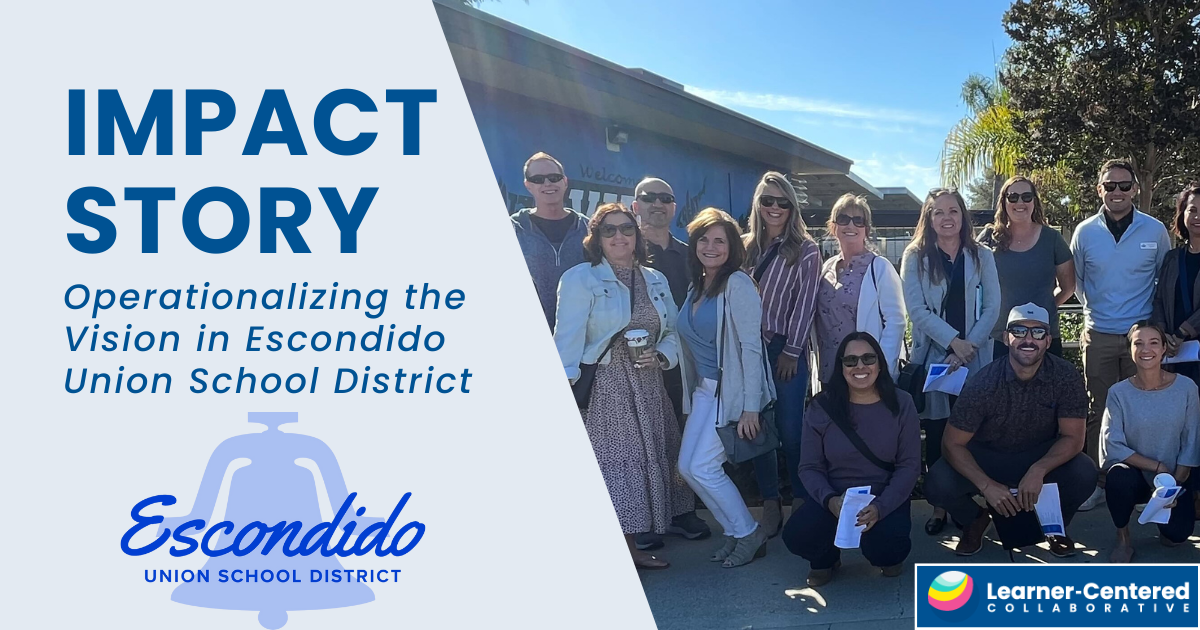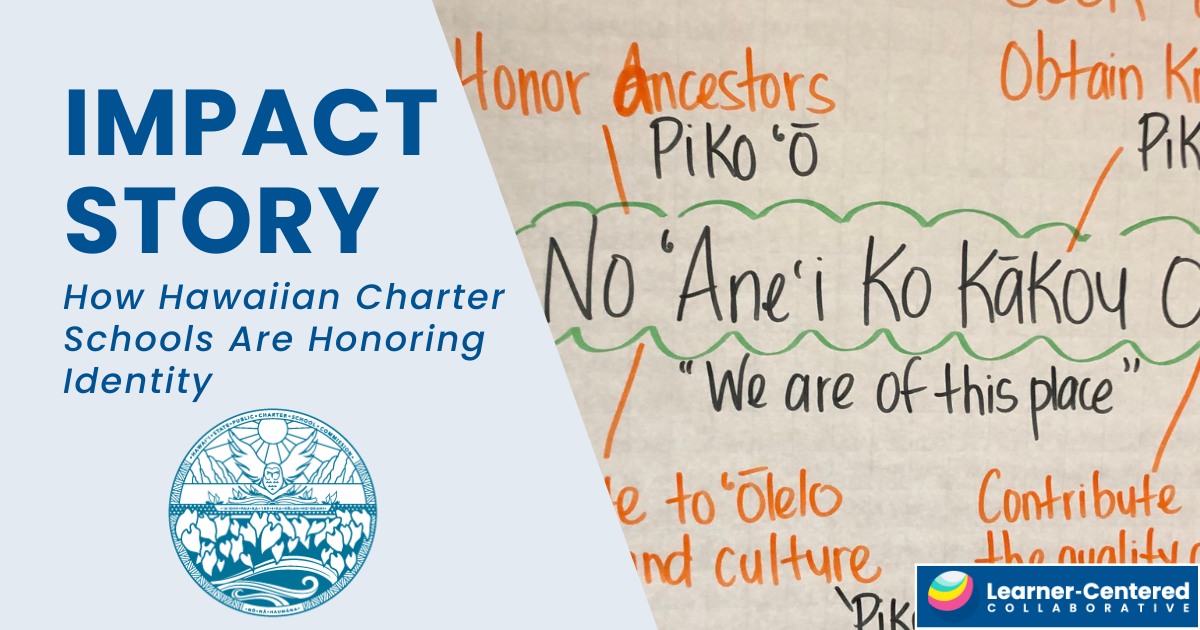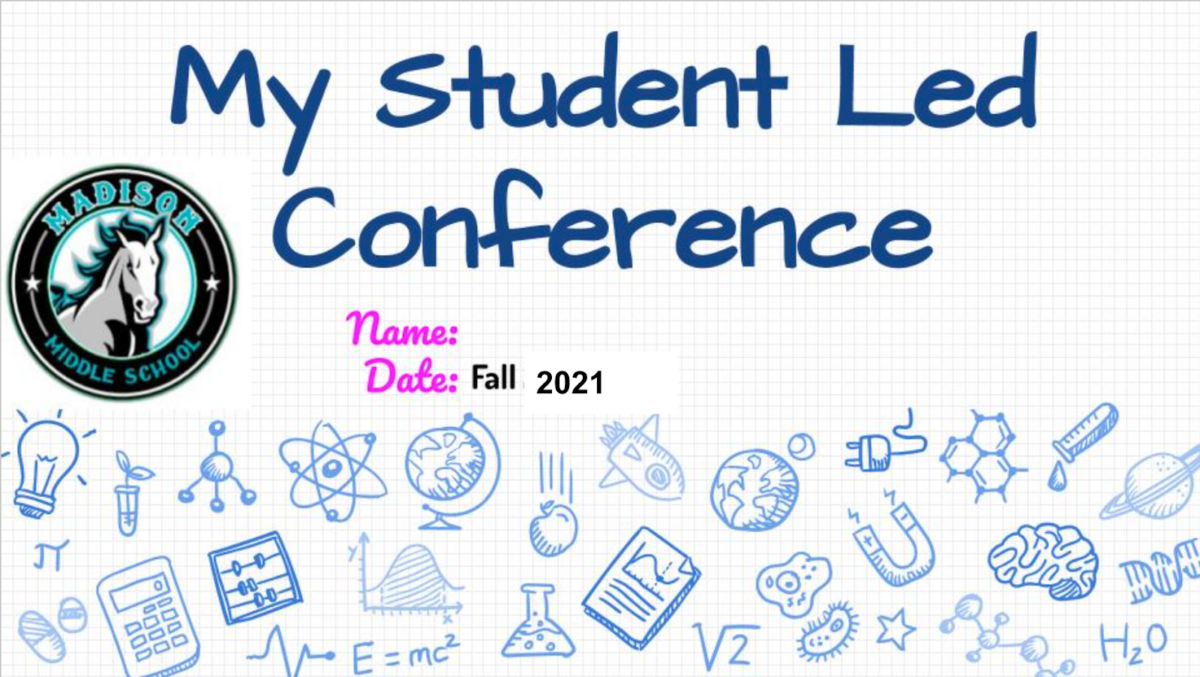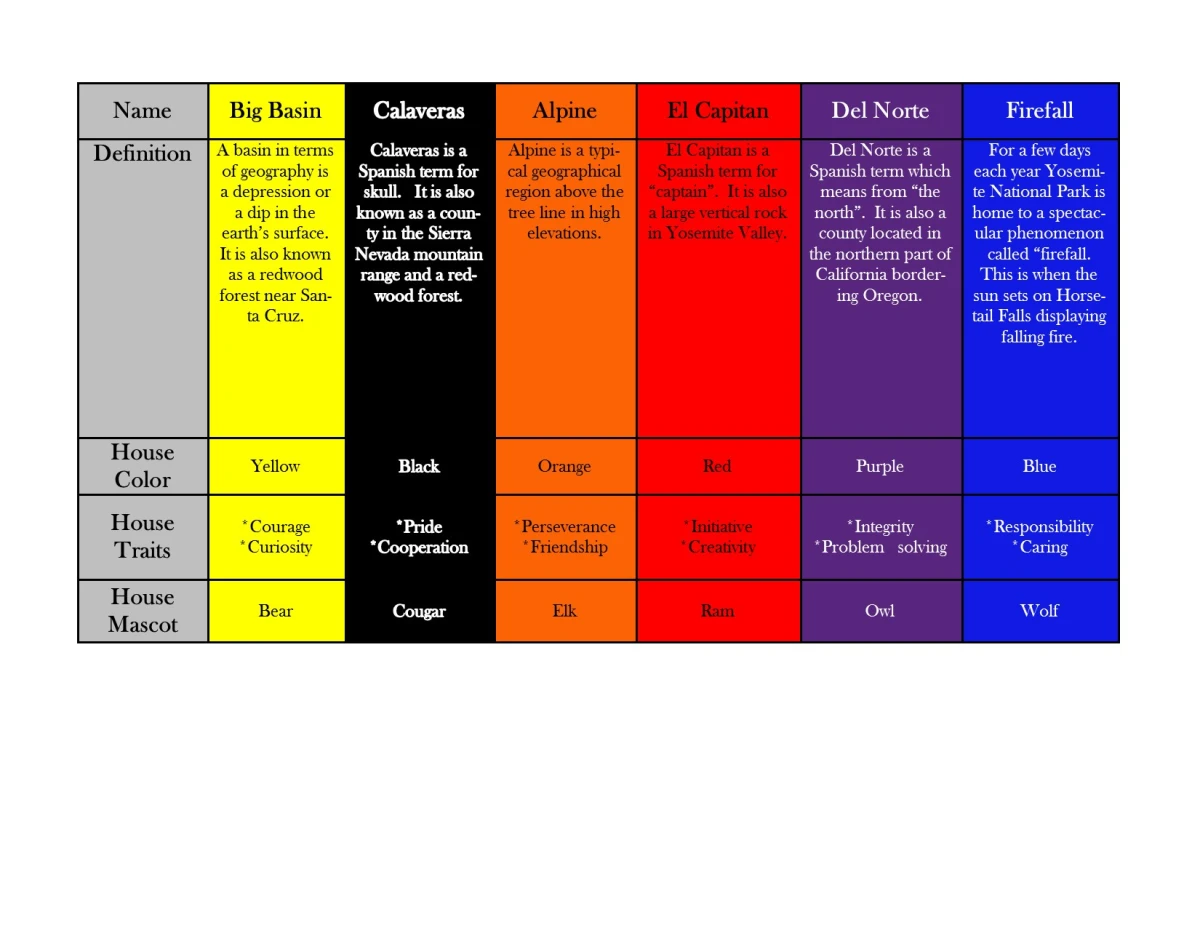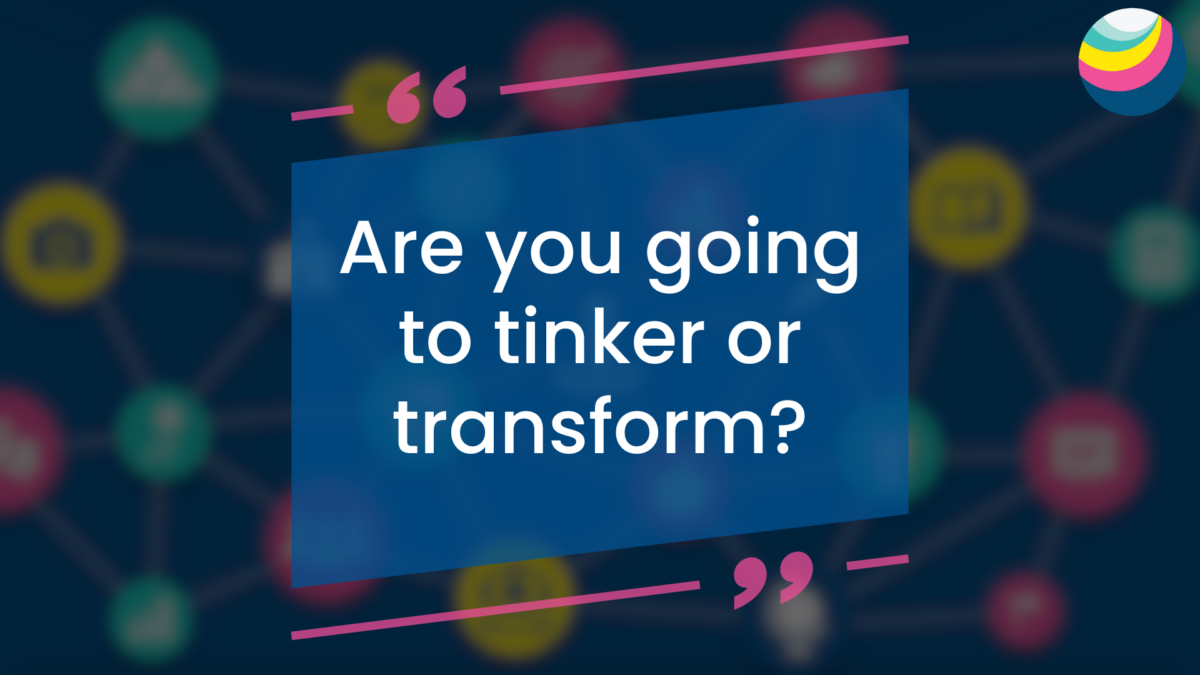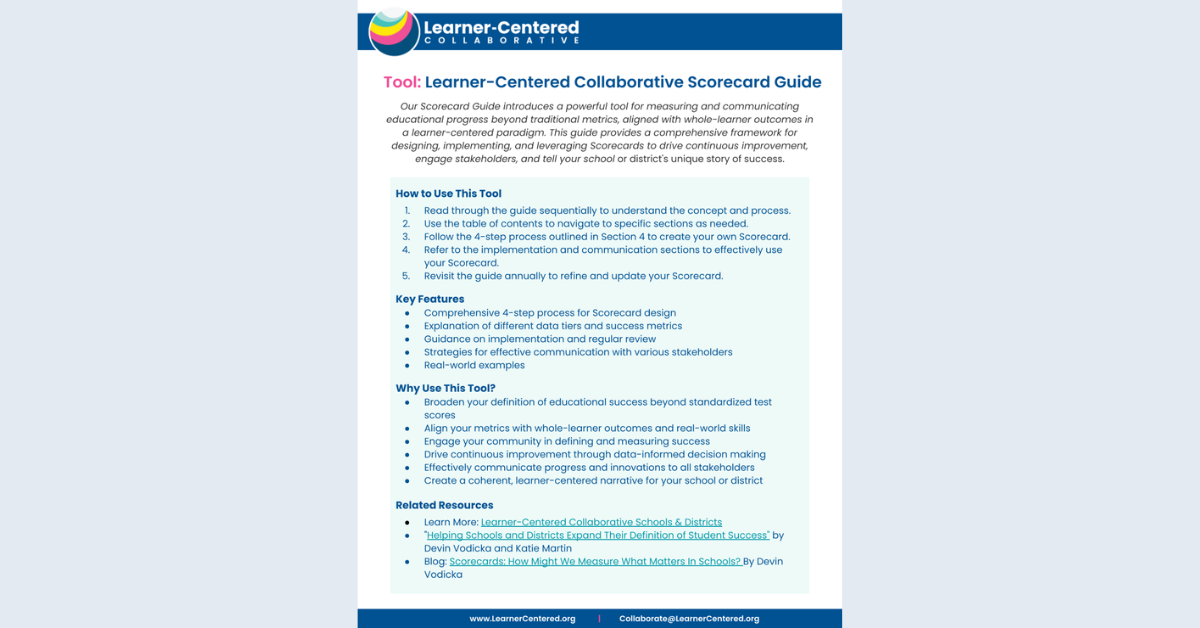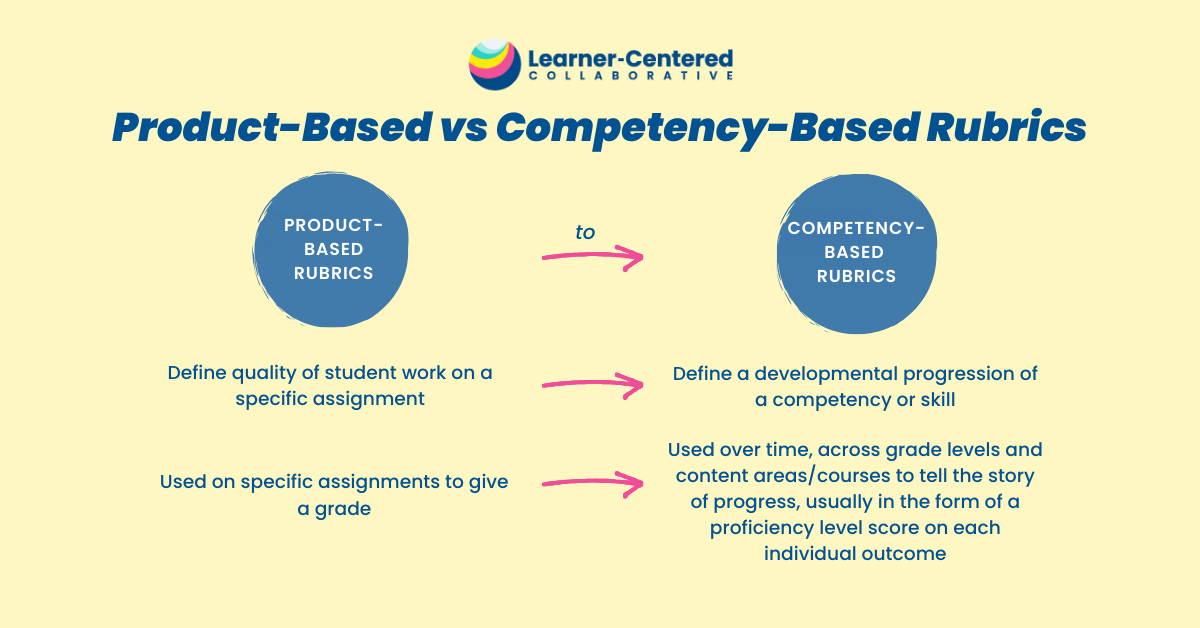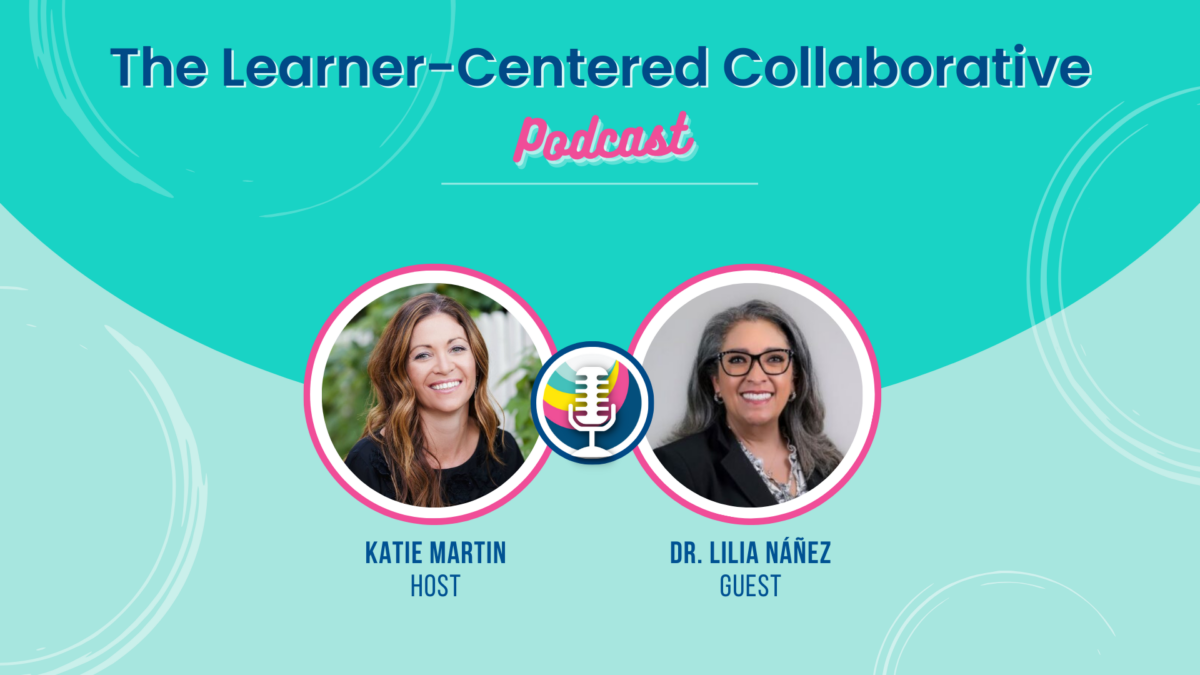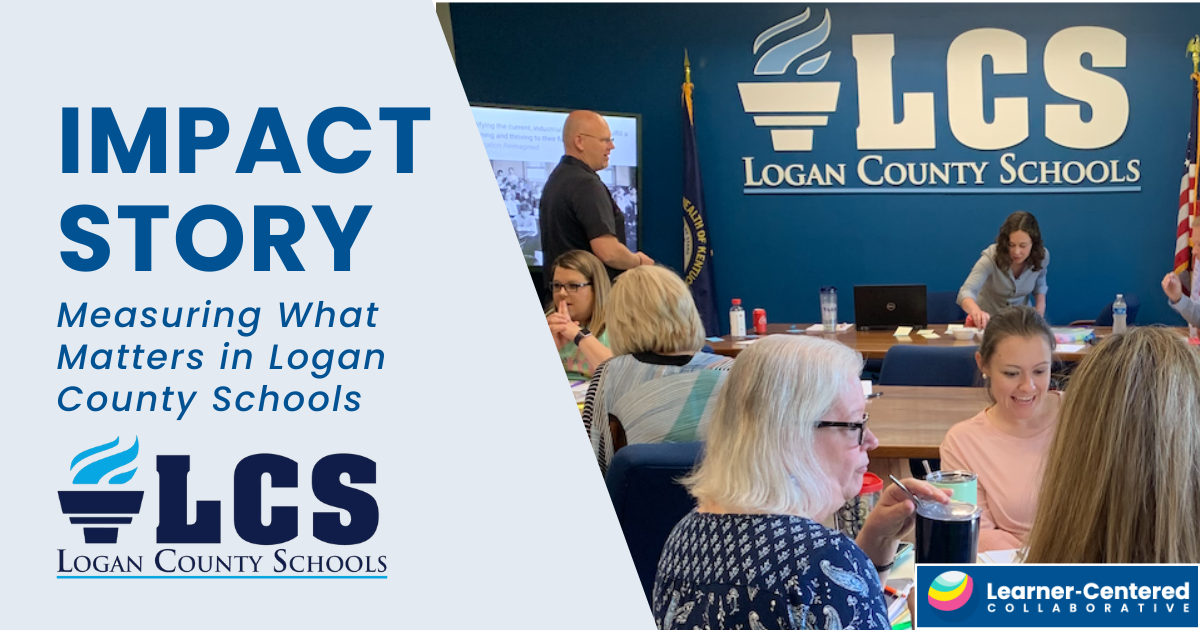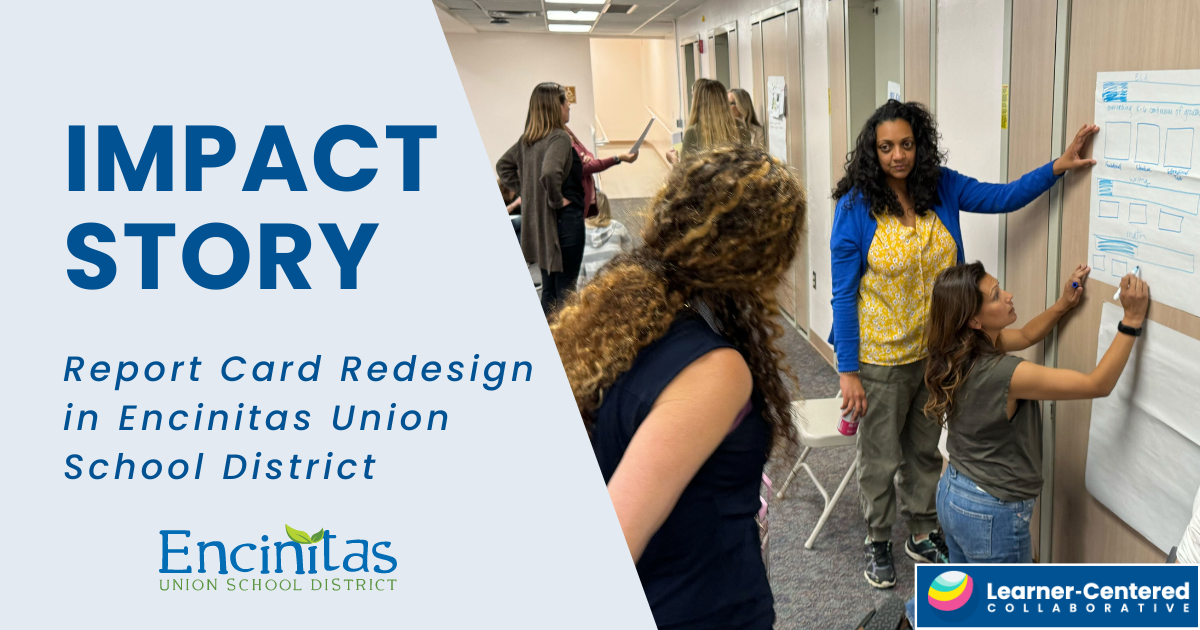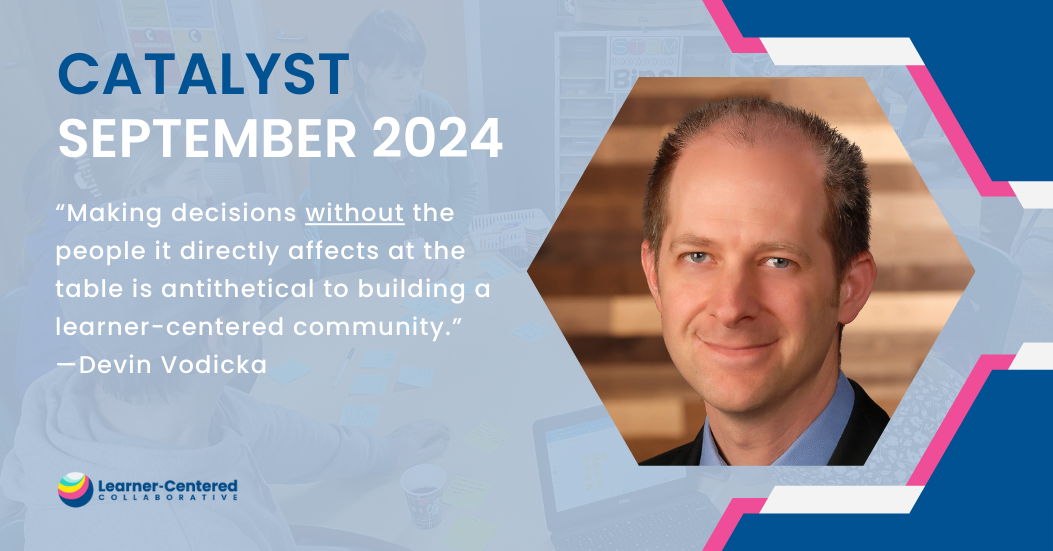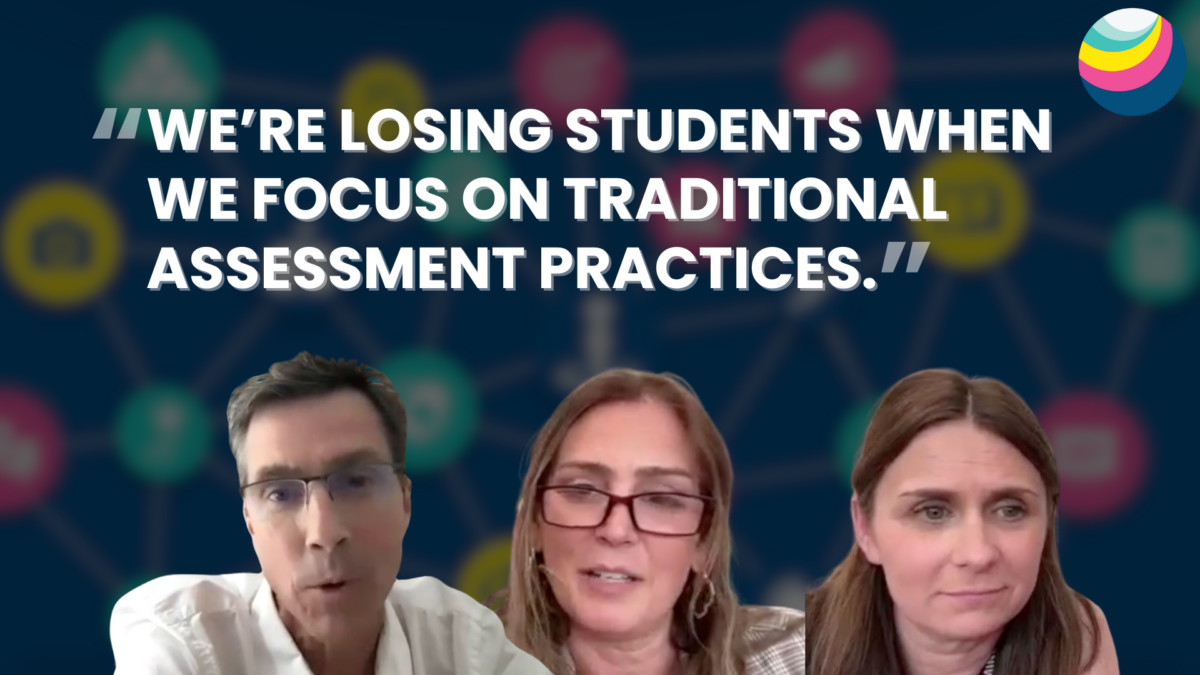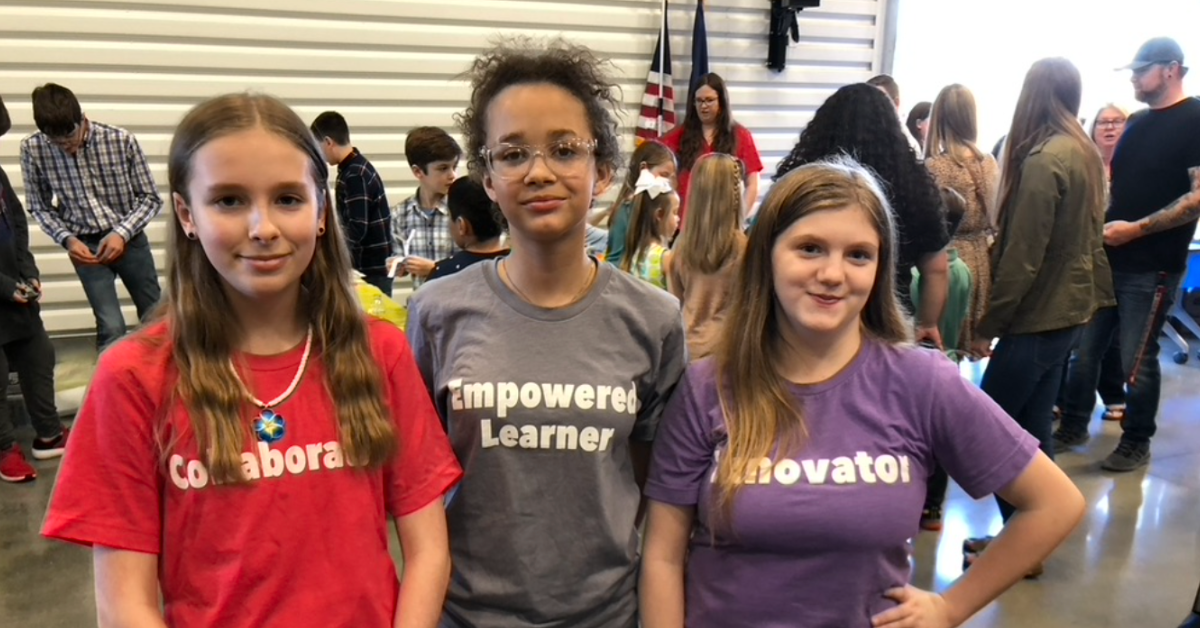Blog
Operationalizing the Vision in Escondido Union School District
See how Escondido USD is turning ideas into actions with student forums, a guiding coalition, and a Framework for the Future.
Blog
How Hawaiian Charter Schools Are Honoring Identity
Brought together by a shared vision to create a more expansive student transcript reflecting whole child learning, charter schools in Hawaii offer a glimpse into their process—from vision to implementation.
Big Moves
Portfolios
Overview A school or district-wide portfolio structure supports learners in curating evidence of their learning and growth over multiple years, across multiple courses or learning experiences. Portfolios are student-curated collections of work that include a self-reflection on progress over time and why that piece was selected to include in the portfolio. They work best…
Big Moves
Student-Led Conferences
Overview A student-led conference is a meeting facilitated by students with their families and teachers. In this meeting, students reflect on their overall learning, progress towards goals, and next steps. Students who participate by leading their own conferences take more ownership of their learning and the communication between school and home becomes more transparent.…
Big Moves
Defense of Learning
Overview A school or district-wide defense of learning (sometimes called Presentation of Learning, Showcase of Learning, Demonstration of Learning or Celebration of Learning) is a way for students, at designated milestones or grade levels, to share a body of evidence of learning and reflect on how they grew towards their own and school/district goals,…
Big Moves
Advisory
Advisory is a recurring and consistent small-learning community with dedicated time in the daily or weekly schedule intended to provide opportunities to cultivate a sense of belonging, support learner agency, and explore strengths and interests. In Expeditionary Learning schools this structure is called “Crew” and it can go by many different names. It also…
BlogWebinars
Webinar Recording: Creating Coherence and Aligning Systems Toward a Learner-Centered Vision
In this webinar, Dr. Andrée Grey from Encinitas Union School District and Dr. Cory Steiner from Northern Cass School District discuss how they are transforming their school systems to center learners in meaningful and personalized ways. Hosted by Catina Hancock of Learner-Centered Collaborative, they explore the importance of creating enabling conditions for change and…
Publications
Learner-Centered Scorecard Guide
Our Learner-Centered Collaborative Scorecard Guide introduces a powerful framework for measuring and communicating educational progress beyond traditional metrics. This comprehensive guide provides a 4-step process for creating, implementing, and leveraging Scorecards to drive improvement, engage stakeholders, and showcase your school or district’s unique success story in a learner-centered paradigm. Explore this tool to…
Blog
Not All Rubrics Are Created Equal: How Competency-Based Progressions Are The Way to Go
For decades, rubrics have been both championed and criticized. This blog explores two distinct types of rubrics: traditional product-based rubrics and the emerging competency-based rubrics. Traditional rubrics, as we typically conceptualize them, are product-based. They define success criteria for specific assignments, describing gradations of quality for meeting expectations. These rubrics are assignment-specific and outline…
Podcasts
Episode 32: Bridging Technology and Curriculum: Unlocking the Power of Aligned Learning Throughout a District with Dr. Lilia Náñez
By loading this video, you agree to the privacy policy of Youtube.Always load Youtube videos on this site.Load VideoListen on SpotifyListen on Apple PodcastsWatch on YouTube Episode Summary: Dr. Lilia Náñez, Associate Superintendent of Ector County ISD in Odessa, Texas, shares her passion for equity and learner-centered leadership, drawing from her personal experience growing…
Blog
Measuring What Matters: Our Journey with Logan County Schools
Contributions from Katie Martin, Learner-Centered Collaborative At Learner-Centered Collaborative, we believe that meaningful change in education begins with a clear vision and community engagement. Our partnership with Logan County Schools exemplifies this approach, as we’ve work together to redefine success for their students and empower the entire learning community. Serving over 3,400 students across…
Blog
Report Card Redesign in Encinitas Union School District
Is redesigning a report card a technical or adaptive change? To answer this, we can turn to the model of technical and adaptive challenges developed by Ronald A. Heifetz (Heifetz & Laurie, 1997; Heifetz & Linsky, 2002). This framework provides valuable insights into the nature of change in education and other fields (Network for…
Blog
Unraveling Mixed Messages: The Impact of Misaligned Systems in Education
Coherence across state, district, school, and classroom levels is critical for delivering clear and consistent messages to our learners. However, systemic misalignments often lead to mixed messages that can undermine our educational objectives and the experiences of our students. The Complexity of Educational Systems In simple terms, a system consists of two or more…
Blog
Why Mindset Matters in Cultivating Learner-Centered Change
Photo courtesy of Embark Education When we introduce new structures or practices in education, we often focus solely on implementing them correctly. However, this approach misses a crucial element: the mindset behind these changes. Our underlying intentions powerfully shape how others experience our designs. The way we think about school, learning, and learners (both…
Blog
A Spotlight on the UCSD + LCC Research Convening: Bright Spots and Networks
In July of 2023, the University of California, San Diego (UCSD) and the Learner-Centered Collaborative (LCC) announced a groundbreaking partnership to unite researchers, practitioners from LCC, and regional districts in advancing learner-centered practices. Among the key objectives of this partnership is to share knowledge and resources and disseminate findings to ensure broader impact of…
BlogWebinars
Webinar Recording: The Future of Assessment and Reporting: Examples of Competency-Based Approaches
Discover the power of competency-based reporting in our latest webinar, featuring insights from the upcoming Competency-Based Reporting Playbook. Our expert panel shared their experiences and strategies for successfully implementing competency-based reporting, covering topics such as rethinking high school transcripts, credits, and assessment practices focused on growth. Key takeaways: Practical insights into successful competency-based reporting…
Blog
Beyond Conventional Metrics: Telling a New Story Through Tiers of Data
School and district leaders are custodians of a future that demands diversity in our measures of success, mirroring our dedication to whole-learner outcomes and the unique visions that drive our schools and districts. Unfortunately, the school-centered system has narrowed the definition of success in such a way that innovative ideas struggle to get off…
Blog
Designing Assessments with Learners at the Center
Assessment often carries negative connotations for many educators, who associate it with grades, rankings, time pressures, effort, frustration, misrepresentation, and standardized tests. However, assessment doesn’t have to be a negative experience. When approached from a learner-centered perspective as a tool for learning and growth, assessment can be a powerful catalyst for student success. The…
